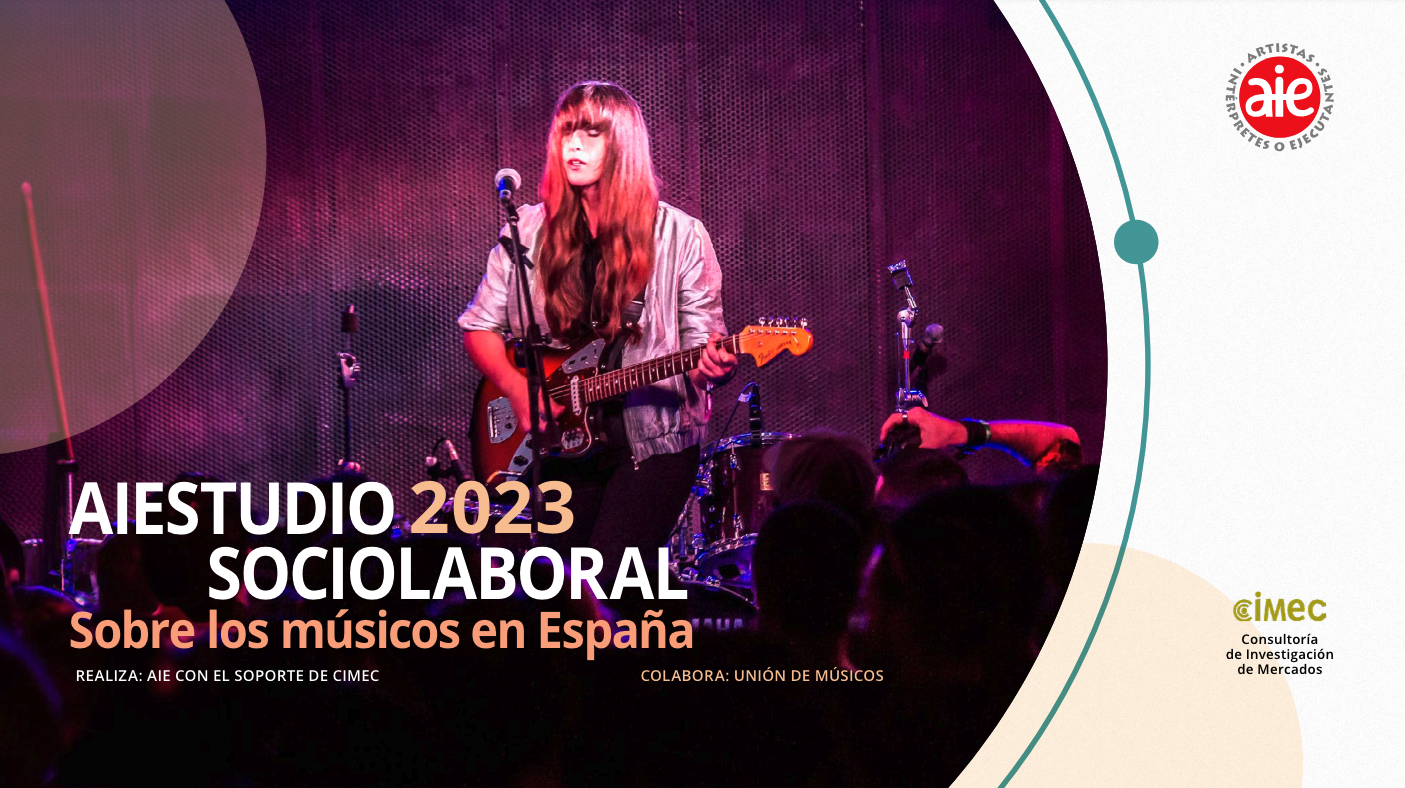Según recoge el “AIEstudio 2023 sociolaboral sobre los músicos en España”, con datos procedentes de un universo de 22.000 socios de AIE
The salary of 75% of musical artists is below €30,000, and the income of 57% does not reach the minimum wage (SMI).
The gender pay gap is evident: women’s average annual income is 13.4% lower than men’s. Additionally, short-term contracts for performance days predominate (77%).
Madrid, June 25, 2024.- The salary of 75% of musical artists is below €30,000, and the income of 57% does not reach the minimum wage (currently set at €15,120 per year), figures that highlight the labor precarity affecting a large portion of the music profession.
This data is part of the “AIEstudio 2023 sociolaboral report on musicians in Spain,” prepared by the AIE management entity, based on a universe of 22,214 AIE members residing in Spain and over the age of 16, between May and August 2023. The study was carried out with the technical support of CIMEC and in collaboration with the Musicians’ Union.
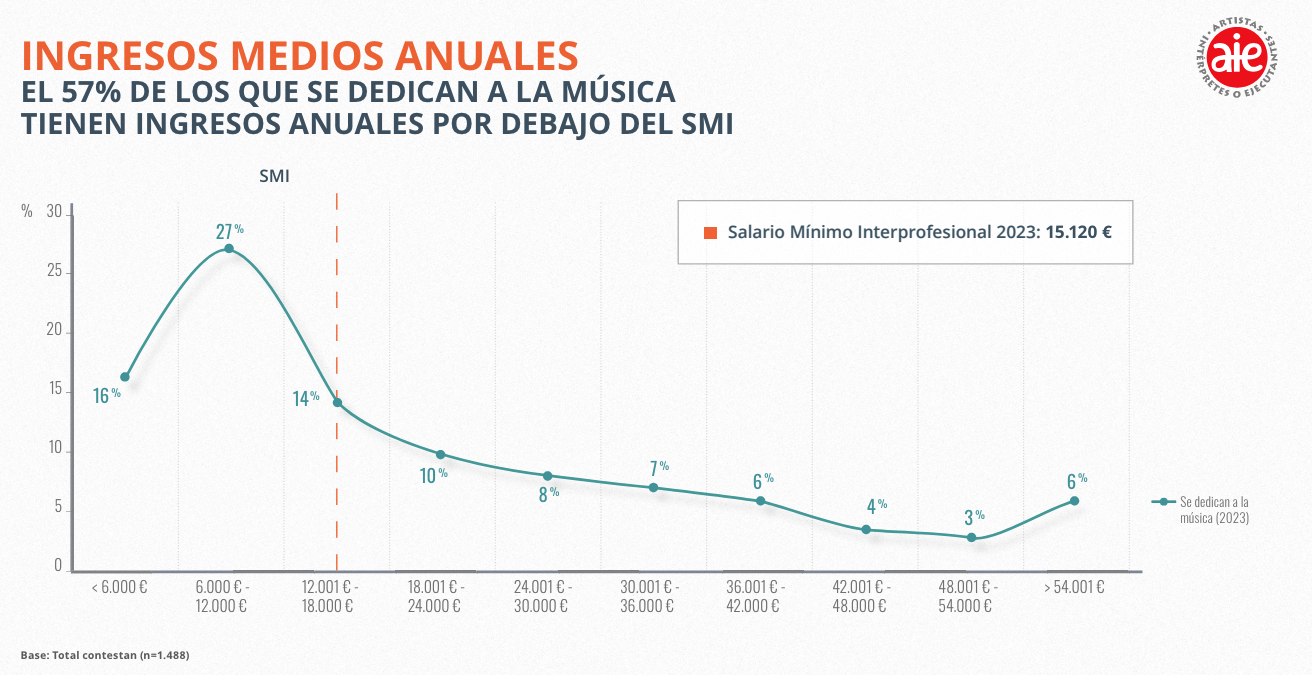
Despite the fact that live performances remain the main source of income for 73% of the total sample, the rest of their income comes from intellectual property rights generated by the use of their music (14%) and recorded music (13%). Therefore, collective rights management emerges as one of the pillars of artists’ economic sustainability. In this regard, AIE plays a crucial role as a management entity, ensuring that musicians receive fair compensation for their creative work.
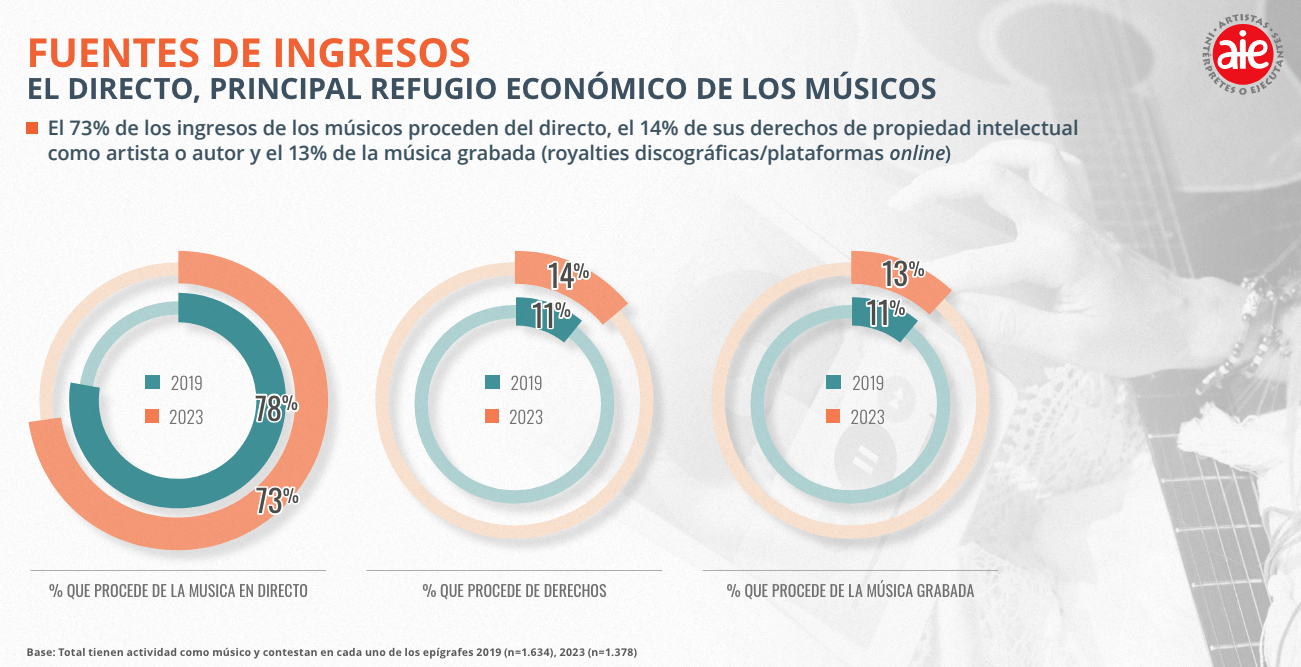
The gender pay gap is also evident in the music sector, with women earning an average annual income of €19,575, 13.4% lower than the €22,601 earned by men.
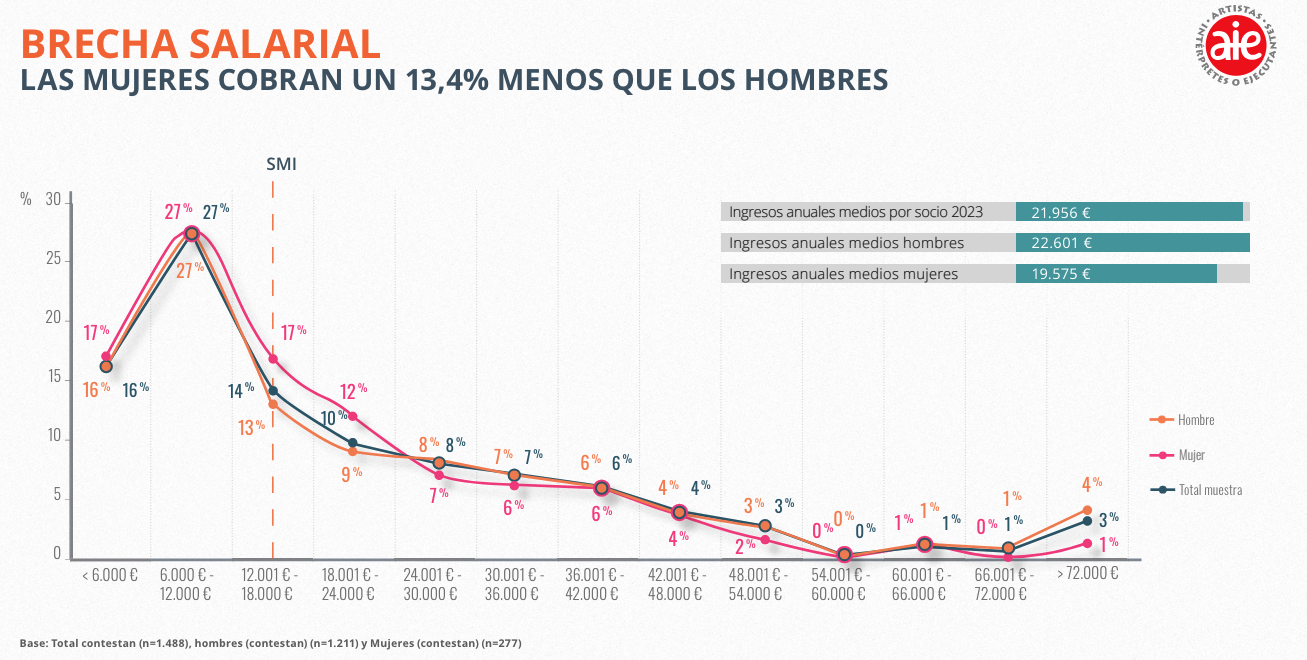
Additionally, many musicians face challenges in accessing stable, well-paid jobs, which directly impacts their quality of life and professional development. The rate of temporary employment has increased by 69.6% since 2019, and today, 47% of respondents work on a temporary contract (compared to 28% in the 2019 study), with 77% of these contracts being short-term, based on performance days.
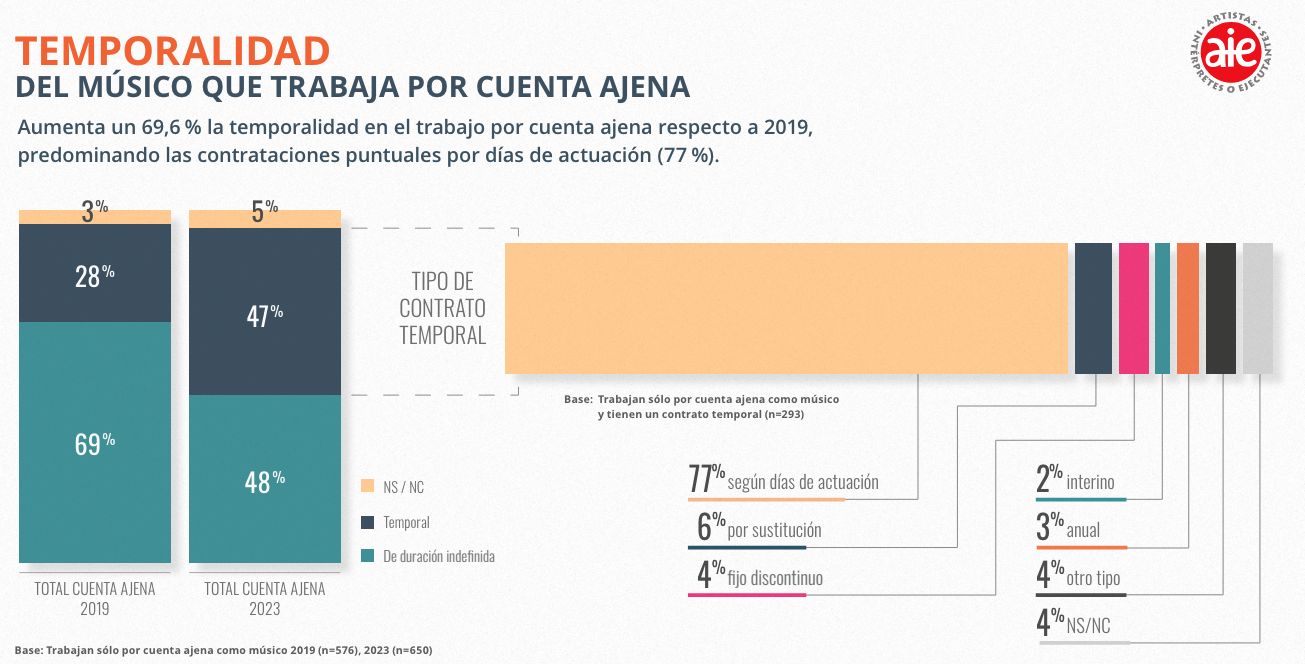
Multiple jobs and music business education
Many artists balance their musical activity with other jobs or work with multiple groups as part of their daily routine. In fact, while 71% of respondents identify performing as their primary occupation, 44% are forced to supplement it with another job, either as teachers or in other roles inside or outside the music sector, as the average number of annual concerts is 40. Moreover, they do not always work with the same band: 69% of respondents play in at least two groups over the course of a year; 51% have played in between 2 and 5 groups, 11% in 6 to 10 groups, and 7% in more than 10.
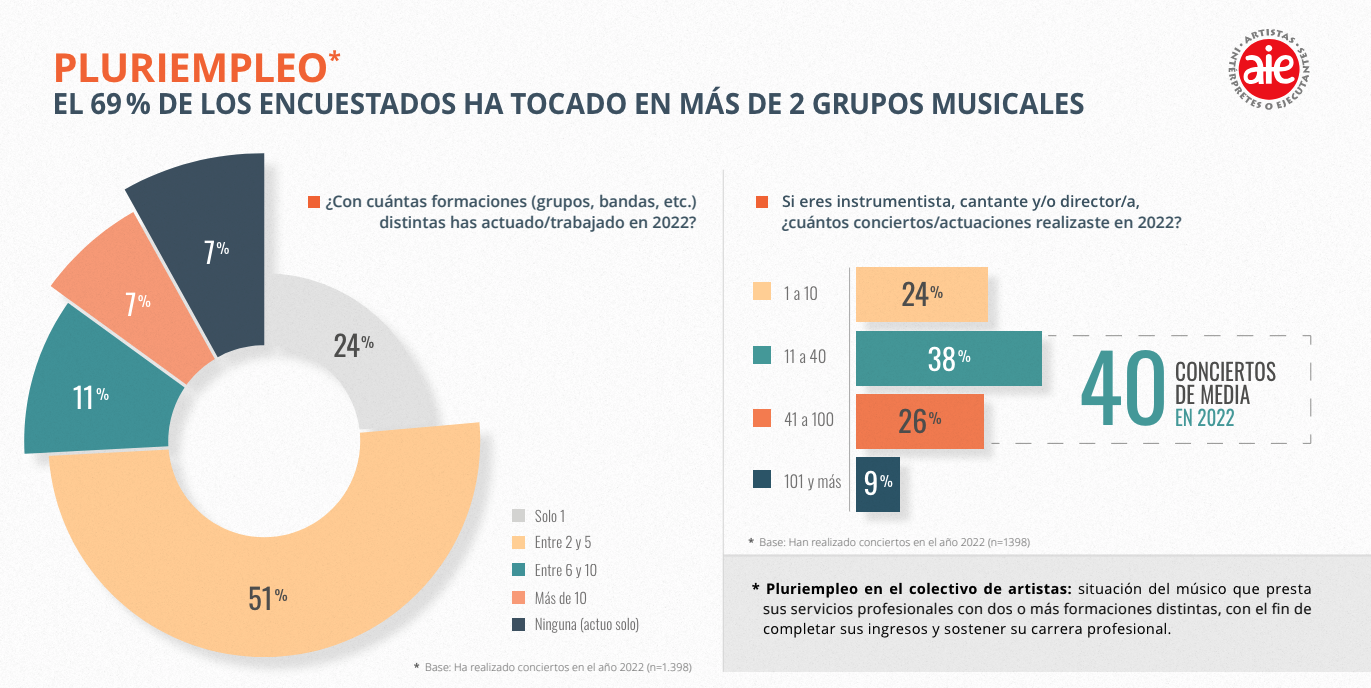
While it is clear that professional musicians increasingly require music business education, as understanding and knowing the business is vital for survival in an increasingly competitive environment, it is striking that 73% of the total sample has not received any form of training in this area.
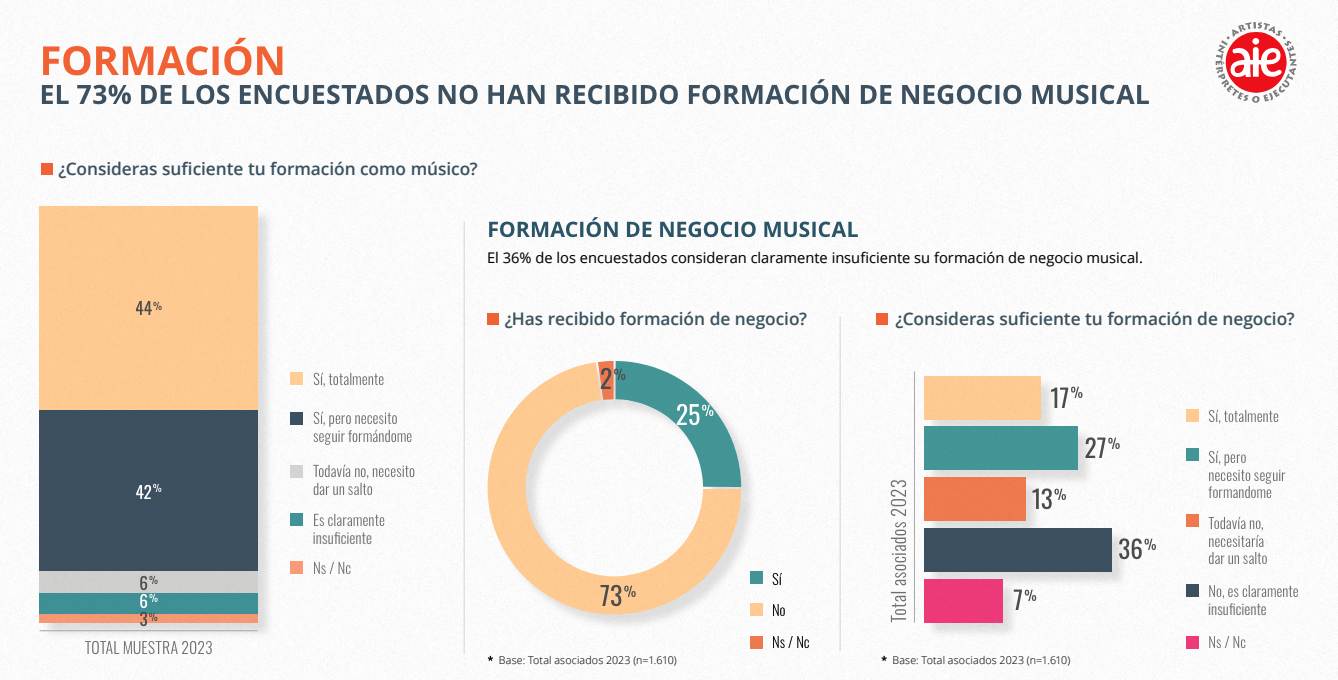
About AIE
AIE is a non-profit organization dedicated to managing the intellectual property rights of performers and executants. Although based in Spain, it represents the rights of more than 35,000 musical artists worldwide, reaching over 1,000,000 artists when taking into account the 110 reciprocal agreements it maintains with 82 entities in 59 countries.
AIE’s mission is to provide innovative global services to musical artists, backed by the best talent and technology, acting with transparency, flexibility, and sustainability, while supporting the development of their professional careers. Additionally, internationally, it engages in various lobbying efforts to create the most favorable legal framework for musicians and contribute to the sustainability of the music industry.


